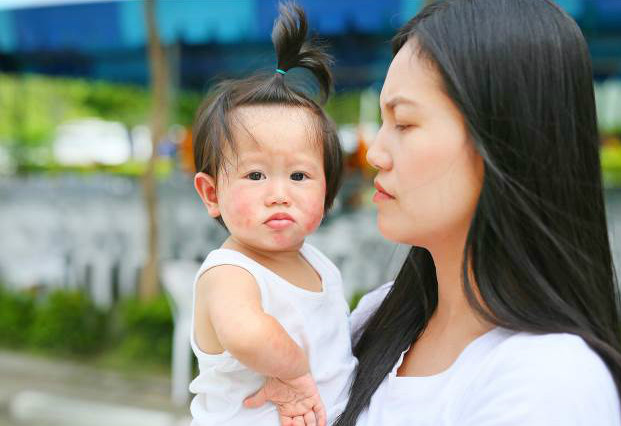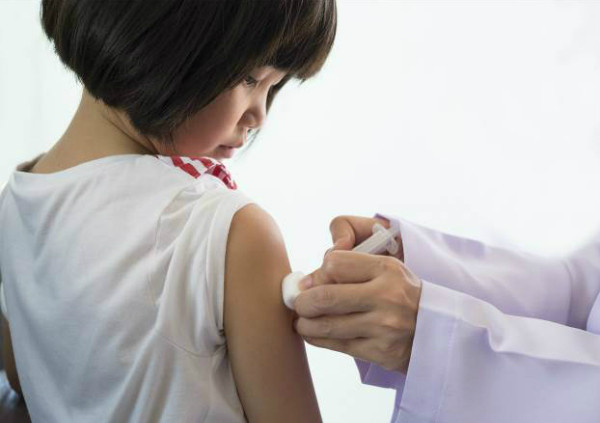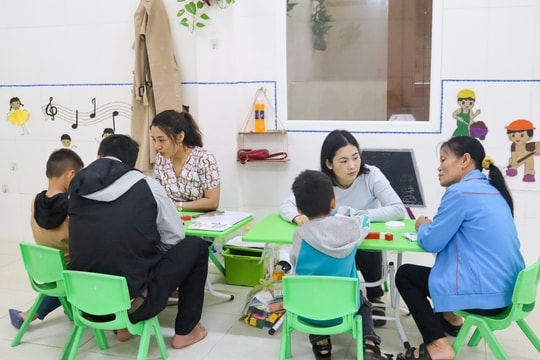Note how to take care of children when chickenpox is in season
March to May is the peak season for chickenpox, so it is necessary to vaccinate early, isolate from the source of the disease, and pay attention to personal hygiene for children.
Folklore calls chickenpox shingles (North) or shingles (South). Chickenpox is an acute infectious disease caused by the Varicella Zoster virus. The disease can occur at any age, especially in young children with weak or incomplete immune systems. According to statistics from the Pasteur Institute in Ho Chi Minh City, 90% of chickenpox patients are children aged 2-7. The disease is easily transmitted, so children who go to school and are often exposed to crowded environments are at high risk of getting it.
Associate Professor, Doctor, Doctor Cao Huu Nghia (Pasteur Institute, Ho Chi Minh City) said: "Chickenpox is a benign disease, but if not detected early, treated promptly and properly, it will cause many dangerous complications. Blisters caused by chickenpox can cause dermatitis, leaving concave scars. Another complication that can occur is pneumonia with symptoms of chest pain, difficulty breathing, cyanosis, coughing up blood. More dangerously, the disease can lead to encephalitis, mental disorders, convulsions, coma..., even death".
Every year, March to May is the peak season for chickenpox, due to the humid and wet weather creating favorable conditions for the Varicella Zoster virus to develop. This virus can spread through the air, making chickenpox easily become an epidemic. Healthy people can be infected with the chickenpox virus if they come into contact with fluid from the broken blisters of an infected person, or inhale droplets of saliva when the patient coughs or sneezes.
 |
90% of chickenpox patients are children 2-7 years old. |
To avoid contact with sources of infection, many mothers advise each other to limit taking their children to crowded places such as classrooms, bus stations, hospitals, supermarkets, etc. In case of forced travel, mothers will carefully make their children wear medical masks, clean their hands and feet with antibacterial soap, and put eye and nose drops as soon as they return home.
Dr. Nghia said that the above measures are effective, but only protect children to a relative extent. "The reason is that even during the incubation period, when the blisters have not yet appeared, the patient does not know that he has chickenpox, but is still able to infect others," Dr. Nghia explained.
Doctors advise that vaccination is still the simplest and most effective way to prevent chickenpox. The current chickenpox vaccine is 90% effective in preventing the disease. The remaining 10% may develop chickenpox after vaccination, but these cases are usually mild and have few complications.
 |
Vaccination is the simplest and most effective way to prevent chickenpox. |
According to vnexpress


